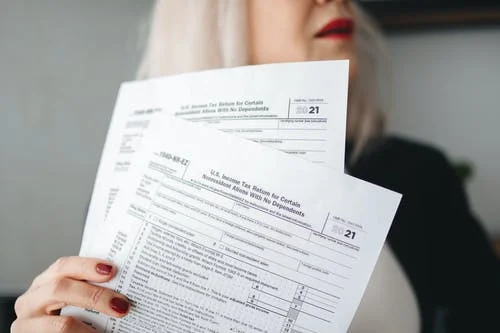The United States is a country made up of many states, and each state has its own sales tax policies. It can be difficult to keep track of the various rules and regulations that apply to your business. This article will show you six ways to make sure you follow sales tax compliance so that you don’t end up owing money to the government or getting into legal trouble.
1. Keep Track of Sales Tax Rates and Changes

The first step to staying sales tax compliant is to keep track of the sales tax rates in your state and any changes that may occur. You can find this information on your state’s department of revenue website. If you have a sales tax permit from your state, they will send out quarterly reports with the latest changes to sales taxes. It’s important to be aware of any rate changes, especially if you have a business with multiple locations in different states.
2. Collect Sales Tax from Customers
In most cases, you are required to collect sales tax from your customers and turn it over to the government. If you don’t, this is a form of tax evasion and can result in legal penalties. However, it’s important to note that not all states require sales tax to be collected.
The rules for this vary by state, so it’s important to check with your state revenue department. There are a few exceptions, such as for certain items like food and clothing, but in general, you should be collecting sales tax on all taxable goods and services.
3. File Sales Tax Returns on Time
One of the most important aspects of staying compliant with sales taxes is to file your returns on time. Most states require sales tax returns to be filed monthly, quarterly, or annually, depending on the size of your business. You can face significant penalties if you miss the deadline, including fines and interest charges. Failing to file a return on time can result in penalties and interest charges, so adhering to systematic guide on making tax digital for your retail business, for instance, is essential. This way, you’d skip the hassles of paperwork, and you won’t miss the due date for filing your sales tax.
4. Maintain Accurate Records
It’s important to keep accurate records of all your sales transactions so that you can accurately report them on your sales tax return. It’s not enough to report your total sales. You will need to list the amount of taxable and non-taxable transactions separately to figure out your sales tax liability accurately.
You may also need to keep records of certain transactions that are exempt from sales taxes, including purchases made for resale and items that are traded in. This includes recording the date of sale, the amount of tax collected, and the type of good or service sold. Taking help from experts like an accountant, and a Tax Law expert in Edmond, OK. Since they will be able to get the records much more efficiently.
5. Pay Sales Taxes on Time
One of the biggest problems businesses have with sales taxes is paying them late. Not only can this lead to penalties and interest charges from the government, but it can also damage your credit score. It’s important to set up a system to pay your sales taxes on time automatically. This will help ensure that you don’t miss the deadline and don’t have to worry about paying late fees. Make sure you have a plan in place to pay your sales taxes on time every month.
6. Educate Yourself and Your Employees about Sales Tax Compliance

The final step to staying sales tax compliant is educating yourself and your employees about the rules and regulations. This includes knowing which items are taxable and understanding how to collect and report sales taxes. It’s also important to understand the consequences of not complying with sales tax laws.
You can find a lot of this information on your state department of revenue’s website, but it’s also a good idea to attend seminars and webinars offered by your state. This will help ensure that everyone in your business is aware of the latest changes to sales tax laws and that they are acting in compliance with the law.
Your business must understand and follows the sales tax laws. If you feel like this blog post has been too long, we can summarize it for you in one sentence: be aware of how to stay compliant with sales tax law by following these six steps.
Read Also:






















